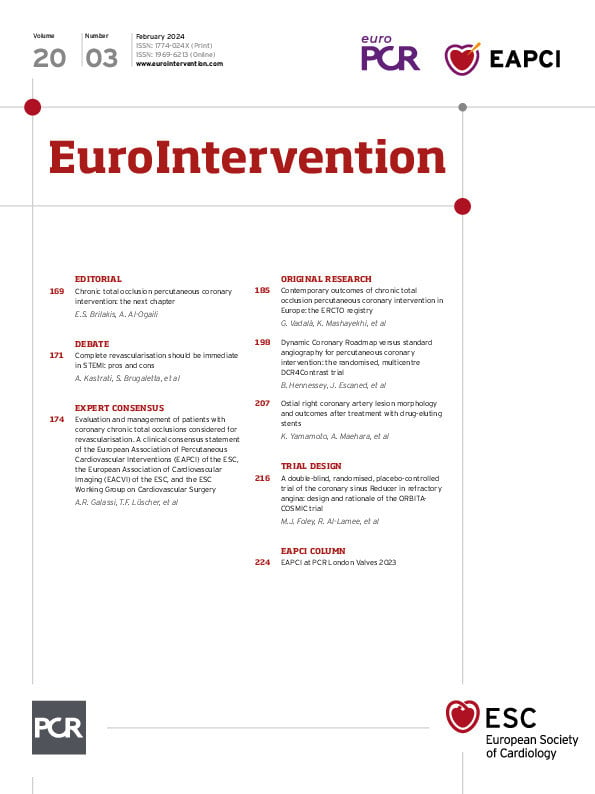It’s only been a few weeks since the year began, and we are already looking towards the future with the latest research, preparing for upcoming meetings and are, of course, concerned with the well-being of our patients. In these busy times, where the demands on our days seem only to amplify, the new EuroIntervention is here to help point the way, focussing on the latest research with the same quality and timeliness you have grown accustomed to.
Join us now and find the following:
Clinical consensus for the evaluation of chronic total occlusion patients
In an expert concensus paper, Alfredo R. Galassi, Thomas F. Lüscher and colleagues present an algorithm for the preinterventional evaluation of patients with chronic total occlusions who are being considered for revascularisation. This covers the initial examination, comorbidities, imaging modalities, the reduction of postprocedural events, and reviews the role of the Heart Team.
Evaluating data from the European chronic total occlusion PCI registry
The success of chronic total occlusion PCI is multifactorial, and Giuseppe Vadalà, Kambis Mashayekhi and colleagues weigh the elements that contribute to chronic total occlusion PCI’s high procedural success rate and low procedural complication rate, including recanalisation techniques, operator experience, arterial access and gender, all data gathered from the ERCTO registry.
Roadmapping for contrast reduction
Breda Hennessey, Javier Escaned and colleagues demonstrate that the Dynamic Coronary Roadmap PCI navigation support tool uses less contrast than conventional angiography-guided PCI and may, given its adaptability to varied clinical settings and PCI complexities, become a welcome addition to the PCI toolbox.
Stenting ostial right coronary artery lesions
Using intravascular ultrasound, Kei Yamamoto, Akiko Maehara and colleagues examine whether specific morphologies of de novo ostial right coronary artery lesions are associated with specific long-term clinical outcomes after drug-eluting stent implantation.

